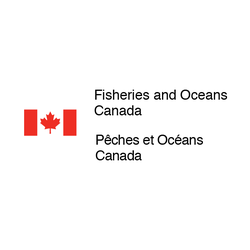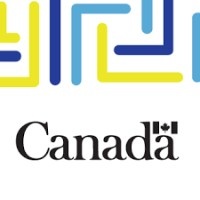
Closed
Critical Habitat Interdepartmental Program (CHIP)
Last Update: March 3, 2026
Canada
Funding for species at risk habitat conservation on federal lands
Grant and Funding
At a glance
Funding available
Financing goals
Increasing community impact
Develop strategic partnerships
Research and experimental development
See more
Eligible Funding
- Maximum amount : 80,000 $
- Minimum amount : 5,000 $
Timeline
- Open Date : October 1, 2024
- Closing date : November 30, 2024
Eligible candidates
Eligible Industries
- Public administration
Location
- Canada
Legal structures
- All legal structures
Annual revenue
- All revenue ranges
Organisation size
- All organization sizes
Audience
- Indigenous Peoples
- Canadians
Overview
The Critical Habitat Interdepartmental Program (CHIP) provides up to $80,000 annually per project to support the recovery of species at risk through habitat conservation, restoration, and related scientific, outreach, or operational activities on federally owned or administered lands. Eligible projects include surveys, implementation of recovery measures, research, and awareness initiatives designed to protect critical habitats and benefit Canada's biodiversity.
Activities funded
- Conducting surveys to assess populations and habitats of species at risk.
- Implementing conservation and recovery actions to restore critical habitats.
- Carrying out research on the biology, ecology, and habitat needs of species at risk.
- Engaging communities and stakeholders in outreach and educational initiatives about species at risk and habitat protection.
- Taking operational measures to mitigate threats, protect, and enhance the quality of critical habitats.
Eligibility
- The applicant must be a federal department, federal agency (excluding Environment and Climate Change Canada, Parks Canada Agency, and Department of Fisheries and Oceans), or a federal Crown corporation.
- The project must take place on one or more federally owned or administered lands where species at risk and/or their habitat are present.
- The proposed project must target at least one CHIP Priority Species (for regular CHIP projects), or at least one Other Internally Prioritized Species (OIPS) with species-specific targeted actions (for OIPS CHIP projects).
- The project must demonstrate a clear benefit to species at risk and their critical habitat.
- All required permits under the Species at Risk Act (SARA) must be obtained prior to the start of the project, where applicable.
Who is eligible?
- Federal departments and agencies (excluding Environment and Climate Change Canada, Parks Canada Agency, and Department of Fisheries and Oceans)
- Federal Crown corporations
Who is not eligible
- Private sector companies (non-federal organizations) are not eligible.
- Federal departments and agencies such as Environment and Climate Change Canada (ECCC), the Parks Canada Agency, and the Department of Fisheries and Oceans cannot apply.
Eligible expenses
- Salaries and benefits for personnel involved in species at risk and habitat research, surveys, and monitoring.
- Costs of equipment and materials directly required for habitat restoration, conservation, or invasive species management.
- Expenses related to the production and installation of educational or outreach materials (e.g., signage, printed materials, information boards, workshops, web tools).
- Travel and accommodation costs necessary for conducting technical, operational, or outreach activities on eligible project sites.
- Operational costs directly associated with the conservation, protection, restoration, or direct threat mitigation for species at risk or their habitat.
Eligible geographic areas
- Federal lands across Canada (priority is given to unprotected federal lands)
- Lands administered by federal organizations across Canada
- Adjacent or neighboring lands to federally owned or administered properties, provided the project occurs on at least one federal or federally-administered property
Selection criteria
- Fulfillment of all mandatory CHIP eligibility criteria.
- Degree to which additional CHIP criteria are addressed.
- Level of demonstrated benefits to species at risk and/or their critical habitat.
- Compliance with all SARA permitting requirements as determined by the CWS Wildlife Management Directorate SARI - Permitting team.
How to apply
1
Identify CHIP funding opportunity
- Review the annual call for project proposals sent to federal organizations in October/November
- Examine associated guidance documents and eligibility criteria
- Assess project alignment with CHIP objectives
2
Confirm project and applicant eligibility
- Verify project eligibility based on location, recipient type, and species targeted
- Consult the list of CHIP Priority Species and OIPS, and their recovery documents
- Ensure you have the necessary authorization for project locations
3
Prepare and complete project proposal
- Complete the two-part project proposal template provided by the CHIP Secretariat (administrative/financial details and project description)
- Gather required supporting documents, such as authorizations or SARA permits if applicable
- List and prioritize multiple project proposals if submitting more than one
4
Submit project proposal to CHIP Secretariat
- Submit the completed project proposal and supporting documents via email to the CHIP Secretariat by the indicated deadline
- Receive acknowledgement of receipt from the CHIP Secretariat
5
Evaluation and permitting process
- Proposal undergoes technical evaluation by the CHIP Secretariat
- Review by the CHIP Review Board and Wildlife Management Directorate
- SARA permit validation for activities requiring authorization
- Potential requests for clarification or additional information from applicants
6
Receive funding decision and sign agreement
- Receive formal email notification of project approval or rejection
- For approved projects, confirm acceptance of CHIP funding and agree on any modifications if required
- Sign a Memorandum of Understanding with Environment and Climate Change Canada
Additional information
- Funding for project monitoring after completion is not guaranteed and is assessed case by case; applicants should indicate any anticipated monitoring needs in their initial proposal.
- Each project proposal must be submitted annually, even for multi-year or ongoing projects.
- The call for proposals is typically issued by email to eligible federal organizations in October or November for the next fiscal year.
- If a federal organization submits multiple project proposals, they should prioritize their submissions and submit the list of projects in order of priority to the CHIP Secretariat.
Contacts
ec.secretariatpihe-chipsecretariat.ec@ec.gc.ca
1-800-668-6767
Canada
Apply to this program
Frequently Asked Questions about the Critical Habitat Interdepartmental Program (CHIP) Program
Here are answers to the most common questions about the Critical Habitat Interdepartmental Program (CHIP). This section explains what the program is, how much funding is available, eligibility requirements, application deadlines, and other important details to help you determine if this grant is right for your business.
What is the Critical Habitat Interdepartmental Program (CHIP)?
How much funding can be received?
What is the deadline to apply?
Who is eligible for the Critical Habitat Interdepartmental Program (CHIP) program?
What expenses are eligible under Critical Habitat Interdepartmental Program (CHIP)?
Who can I contact for more information about the Critical Habitat Interdepartmental Program (CHIP)?
Where is the Critical Habitat Interdepartmental Program (CHIP) available?
Apply to this program
More programs like this

Grant and FundingClosed
ISED — Artificial intelligence (AI)
Supports testing innovative AI prototypes for Canadian government needs

Partnering and CollaborationGrant and Fundingarchived
Equality for Sex, Sexual Orientation, Gender Identity and Expression Program
Supports equality initiatives for sex, sexual orientation, and gender identity

Grant and FundingClosed
Rail Safety Improvement Program (RSIP) - Research and Education Component
Funding for rail safety infrastructure, research, and education projects

Grant and FundingClosed
Canada Nature Fund for Aquatic Species at Risk (CNFASAR)
Supports recovery and protection of aquatic species at risk

Other SupportGrant and FundingClosed
Artificial Intelligence for Canadian Energy Innovation
Supports AI-driven solutions accelerating Canadian energy technology innovation

Grant and FundingClosed
Advancing Accessibility Standards Research
Supports research advancing federal accessibility standards in Canada

Grant and FundingClosed
Small Craft Harbours Abandoned and Wrecked Vessels Removal Program
Funding for removal and disposal of abandoned vessels in harbours

Grant and FundingOpen
Memorial Grant Program for First Responders
Supports families of first responders who died in the line of duty

Partnering and CollaborationGrant and FundingClosed
Collaborative Science, Technology and Innovation Program - Collaborative R&D Initiatives
Supports collaborative R&D addressing major Canadian policy challenges

Grant and FundingOpen
Heavy Urban Search and Rescue (HUSAR)
Supports specialized emergency response teams for urban disaster management
Sign up to our platform to access the Critical Habitat Interdepartmental Program (CHIP) information sheet for free
Get access to 10,000+ programs, practical guides, personalized alerts, and an AI assistant to support your grant applications.